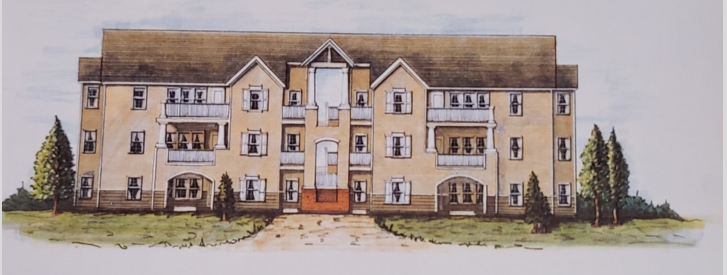
About Us
The Middle Georgia State University (MGA) Archives & Special Collections serves as a research center for the study of the University's history by members of the Middle Georgia State University community and the scholarship community at large.
The mission of the MGA Archives & Special Collections is to:
- Appraise, collect, organize, describe, preserve, and make available select University records of historical, enduring value.
- Document the goals and activities of the institution in pursuit of increasing and diffusing knowledge and fostering learning in every visitor.
- Provide documentation of the development and growth of the University, including its physical plant and grounds, and its role in the state of Georgia and the middle Georgia community.
- Provide documentation to ensure accountability for the actions of our founders, our faculty, and our supporting administration through the University System of Georgia records retention schedules that provide guidance on maintaining active and inactive records moving to and from the archive.
- Serve in a public relations capacity by promoting knowledge and understanding of the origins, programs, and goals of the University and their development.
In general, the MGA Archives & Special Collections will collect:
- Policy statements, annual reports, subject reports, statistical summaries, correspondence, photographs, and other papers.
- Official University publications: catalogs, student newspapers and literary magazines, yearbooks, alumni magazines, newsletters, journals, admissions and fund-raising brochures, programs of events.
- Faculty publications.
- Alumni memoirs, diaries, photographs, scrapbooks, correspondence, or other documents relating to the individual’s affiliation with Middle Georgia State University.
- Physical and digital clippings and photographs relating to the campuses, university personnel, alumni, and students.
The MGA Archives & Special Collections generally will not collect:
- Books, articles, or records simply because they were owned by someone associated with the University.
- Routine financial or enrollment records of the University and its students.
- More than 3 duplicate copies of most publications, items, etc.
- Materials exhibiting decomposition, mold, or pests.
- Severely damaged items.
On a case-by-case basis family or personal papers may be accepted as donations in the event they provide added historical value to the university, the region, or state of Georgia. While we may not accept everything that is offered (due to space constraints or items not aligning with our collecting mission), we welcome the chance to review the materials. If it does not fit the scope of our repository, we may be able to refer another institution.
Such materials that may be donated include:
- Correspondence (letters)
- Diaries or journals
- Scrapbooks/photo albums
- Professional papers (copyright discussion needed)
- Speeches/lectures/articles/essays
- Brochures/fliers/newspaper clippings
- Awards/certificates (dependent on size and significance)
- Photographs (with subjects and locations identified)
- Films/videos/audio tapes (with subjects and locations identified)
- Records of participation in organizations
Items generally not taken for family or personal papers:
- General publications that are widely available, popular magazines
- Phonebooks, atlas, catalogs (retail)
- Organic/once living items
- Duplicated items (3 in total will be maintained in the Archive)
- Items with sentimental value
The final decision as to whether an item will be accepted into or retained in the Archives will be made by the Dean of Library Services and the Archivist. Considerations will include whether the item fits the mission of the Archives and its collection policies, as well as physical and financial capacity of the Archives.
Monetary Appraisal for Tax Deduction
Please note, the Archivist or liaison cannot give tax advice, nor are they permitted to appraise the monetary value of a collection that is under consideration for donation to the MGA Archives & Special Collections.
Sources:
Society of American Archivists. (2013). Donating Your Personal or Family Records to a Repository. https://www2.archivists.org/publications/brochures/donating-family records
Society of American Archivists. (2023, July 26). Guidelines for College and University Archives.https://www2.archivists.org/standards/guidelines-for-college-and-university-archives
Making an appointment with the Archivist is recommended. Some of your requested items may take longer to locate than others particularly if they are on another campus. If you make an appointment, the archivist can have your request filled and waiting for you at your appointment time.
All users and visitors to the MGA Archives & Special Collections are required to sign in. By signing in, you agree to abide by the rules. For the protection of our materials and collections, you may be denied access if you do not comply with the rules.
No materials, documents, or collections belonging to the Archives may be removed from the Archives without the express consent of the Archivist, Librarian on duty, or the Dean of Library Service. The Archives is monitored at all times for security. Visitors and researchers may be accompanied by a staff member. While using our materials, you may have only paper, pencil, or a laptop computer with you. No pens are permitted.
All bags, containers, backpacks, purses, computer cases, coats, etc. must be kept away from the records to maintain security protocol. Do not leave your belongings unattended; they will be removed by campus police and house at their lost and found area for pickup. No food or drink, even in a covered container, is allowed in the Archives. No gum or mints or other edible items are allowed. No chewing gum is permitted.
Please handle all materials as if they were ancient and fragile. Turn pages gently, and lay your pencil down while handling the materials. Please touch photographs only at the corners! Self-service duplication of materials is permitted within reason. You may use your cell phone with camera, or digital camera to take with you. Any physical copying must be handled by the Archivist to maintain the record's protections.
If you discover materials in need of re-housing or preservation treatment, please tell the Archivist as soon as you notice.
Archives News
Middle Georgia State University Archivist, Ashley Bennett, to provide updates on new projects taking place within the University Archives throughout the year. Content coming soon!
Learn More
Explore the collective histories of our institution from our Collections page.
